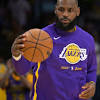'Secret Invasion' Review: Samuel L. Jackson's Disney+ Nick Fury ...

It isn’t that I don’t enjoy a good superhero show or movie, but I like it when Marvel gets playful with genre. It’s the reason I always say that my favorite film in the MCU is the first 45 minutes of Captain America: The Winter Soldier, the part that’s basically a ’70s conspiracy thriller, before the action gets bigger and the tone becomes more conventional. I loved WandaVision at its meta-sitcom-y peak and thought Hawkeye was most charming as Marvel’s explosive take on a Hallmark holiday film.
So when the logline for Secret Invasion, Disney+’s latest six-parter, suggested a paranoid Cold War drama with a backdrop of conquering lizard-aliens, that got my pulse racing a little.
The Bottom Line A great cast stuck in a repetitive slow burn.
Through two episodes, the series itself is a disappointment. A tremendous cast, led by Samuel L. Jackson, Ben Mendelsohn, Olivia Colman and Don Cheadle, keeps things generally watchable and, when they’re given the opportunity to interact, you can spot the best version of the show. But for the most part, Secret Invasion is more dour and even dull than one might expect from its John le Carré/Graham Greene trappings.
Created by Kyle Bradstreet (Mr. Robot), Secret Invasion picks up the Skrull storyline from Captain Marvel decades later, in the aftermath of The Blip. No longer content to wear human skin and wait patiently for Nick Fury (Jackson) and Carol Danvers (Brie Larson, not a part of this series, at least so far) to find them a new planet to call home, renegade Skrulls have begun a new terrorist campaign. Led by Gravik (Kingsley Ben-Adir), a revolutionary with a base at an abandoned nuclear plant in Russia, this new generation of Skrulls is fomenting international conflict and awaiting the opportunity to take over.
The series’ first scene, featuring guest stars Martin Freeman, Richard Dormer and Cobie Smulders, establishes that the Skrull rebels are planning their biggest attack to date, a dirty bomb assault aimed at bringing Russia and the United States to the brink of war. It’s a big enough threat that Fury is summoned down from his self-imposed space isolation with S.A.B.E.R.
Fury returns to discover that Maria (Smulders) is disappointed at his abandonment and that Talos (Mendelsohn), the Skrull he befriended in Captain Marvel, no longer has sway over his own people or his daughter G’iah (Emilia Clarke). Fury has been gone for a long time and he has to make sense of the new world order, to figure out which former allies he can trust, including deceptively cheery MI6 agent Sonya (Colman) and James Rhodes (Cheadle), who is now an adviser to the U.S. president (Dermot Mulroney). Can Fury, seemingly a shell of his heroic former self, stop an invasion in which the shape-shifting invading force could be anybody? Or will he need help from the Avengers, in which case we’ll have to await a future movie for closure?
I was hooked for maybe the first 15 minutes of the Ali Selim-directed pilot, which aggressively nods in the direction of The Third Man, complete with conversations about clocks, arched doorways, evocatively lit pursuits through tunnels and a small child with an ominously bouncing rubber ball. There’s a solid foot-chase around “Moscow” — everything in Secret Invasion is set in chilly, gray urban spaces that don’t resemble anywhere specific — and Jackson and Colman get their lone scene of insinuating banter, with a Paul Robeson joke that made me laugh out loud.
Unfortunately, the action in Secret Invasion peaks with that first scene. Only a countdown to possible disaster in a Russian square at the premiere’s climax (building up to something shocking that may piss some fans off) comes close. Then, other than a brief bout of torture in the second episode, the series is almost all talk.
Now, good action doesn’t necessarily make for a good Marvel series. I wrote a positive review of The Falcon and the Winter Soldier based mostly on the rousing, effects-driven premiere and then watched the show struggle to find itself for three or four episodes. And talk doesn’t need to be bad, even in the MCU. It can be thrilling in its own way, whether a conversation about abandonment between Maria and Fury, or a sit-down, infused with the series’ only dose of racial politics, between Fury and Rhodey. More often than not, though, the conversations in the first two episodes are one person after another either telling Nick Fury that he’s past his peak or, in his absence, discussing how they’re not worried about Nick Fury because he’s past his peak.
The villain in Secret Invasion isn’t Nick Fury, but it may be Nick Fury’s difficulties fulfilling his promises to both colleagues and the Skrulls. Jackson is excellent at playing characters who aren’t what they used to be, but are still more badass than you could ever dream of being, and this slightly hunched, slightly disheveled, somewhat hesitant version of the character is a good interpretation. Put him opposite Cheadle’s slick, bureaucratic take on Rhodey or Colman’s smiley, chipper veteran spy — she’s like Mary Poppins if Mary Poppins preferred enhanced interrogation techniques to spoonfuls of sugar — and Jackson will rise to any bantering challenge. But the repetitive exposition and forced quippiness of the dialogue let him and the show down.
The somber plot is both familiar and predictable. Once the Skrulls can be anybody and you’ve played the “Is that the character I recognize or is it a Skrull in disguise?” game four or five times, it’s impossible to build tension around what ought to be provocative ideas of identity. It’s like how I chuckled at half an episode of Netflix’s Is It Cake? and then stopped finding it entertaining. It either is or isn’t cake and they either are or aren’t Skrulls, and that’s just not enough premise upon which to hang burgeoning paranoia, much less an ongoing series. Secret Invasion acknowledges some of the underlying refugee/immigrant metaphors that popped up in the second half of Captain Marvel — but, like nods to the current geopolitical tensions in Russia or a facile opening joke about the blurring line between news and disinformation, usually it isn’t about much of anything. And if it isn’t committed to being about much of anything or to making sure that enough is happening, that’s a bad combination.
Of course, with the Disney+ Marvel shows, my opinions have often shifted wildly as seasons progressed, whether I found myself liking them less (the aforementioned Falcon and the Winter Soldier) or more (the aforementioned Hawkeye), or more and less (the impressively inconsistent She-Hulk). There are elements here with a lot of potential, starting with the father-daughter relationship between Talos and G’iah, which hasn’t been given enough screen time yet for Clarke to be anything more than glum and conflicted. Ben-Adir gives Gravik a chilly and reptilian streak that’s wholly appropriate for whatever it is that Skrulls are, without yet feeling like a compelling threat. It’s not as if I’m going to stop watching any show that lets Samuel L. Jackson and Olivia Colman circle each other in a conversational dance of diplomatic menace. Eventually Katie Finneran, playing a scientist with no characterization to speak of, may get to sing.
A third of the way through the series, though, Secret Invasion is less Cold War and more Generally Tepid Kerfuffle.


 United States
United States Argentina
Argentina  Australia
Australia  Austria
Austria  Brazil
Brazil  Canada
Canada  Chile
Chile  Czechia
Czechia  France
France  Germany
Germany  Greece
Greece  Italy
Italy  Mexico
Mexico  New Zealand
New Zealand  Nigeria
Nigeria  Norway
Norway  Poland
Poland  Portugal
Portugal  Sweden
Sweden  Switzerland
Switzerland  United Kingdom
United Kingdom 































